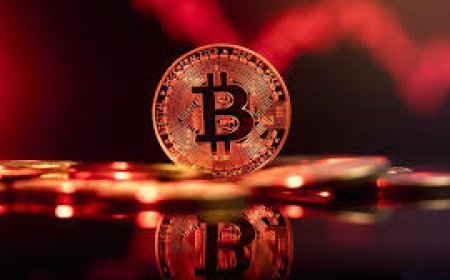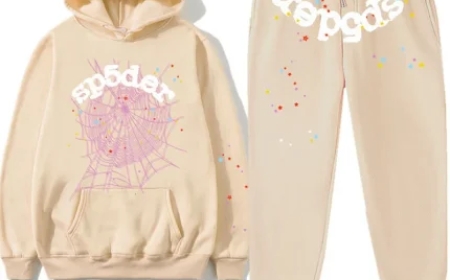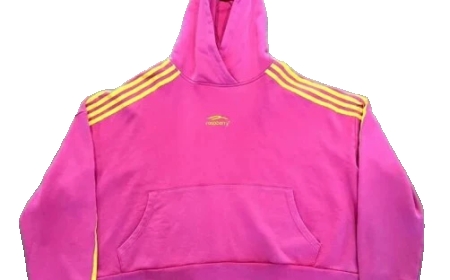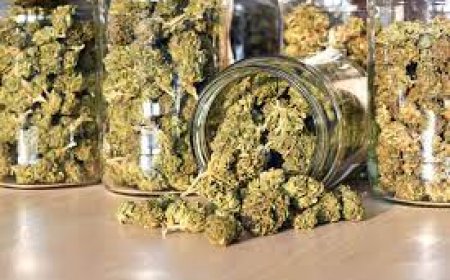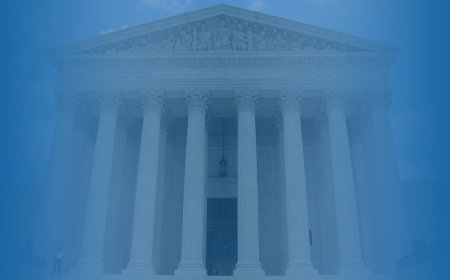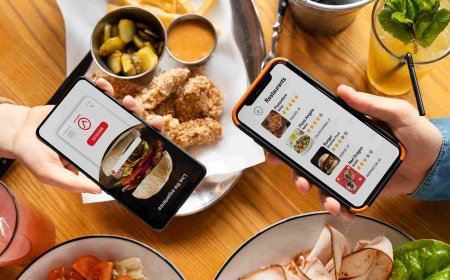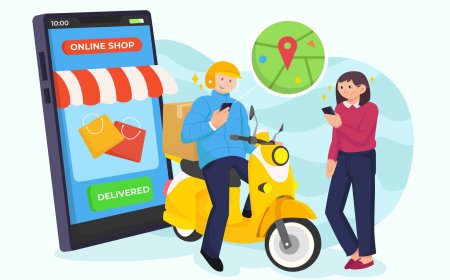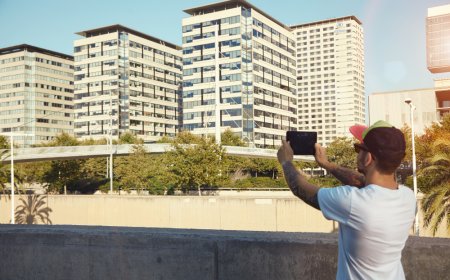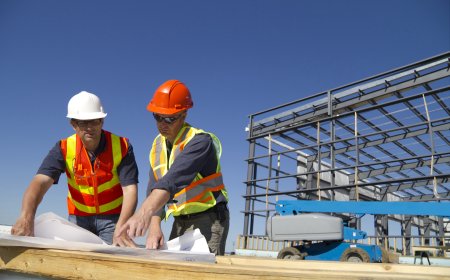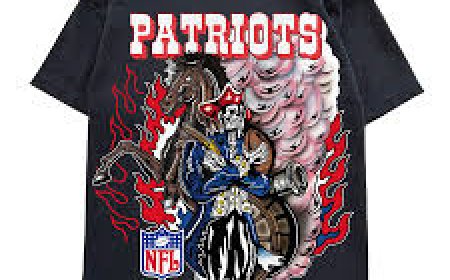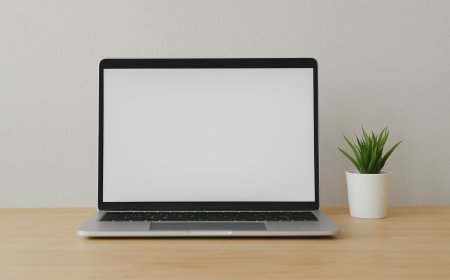How to Recycle Correctly in Phoenix Curbside Pickup
How to Recycle Correctly in Phoenix Curbside Pickup Recycling is more than just a household chore—it’s a critical component of sustainable urban living. In Phoenix, Arizona, where rapid growth and desert climate place unique pressures on waste management systems, curbside recycling plays a vital role in reducing landfill use, conserving natural resources, and lowering greenhouse gas emissions. Yet
How to Recycle Correctly in Phoenix Curbside Pickup
Recycling is more than just a household chore—it’s a critical component of sustainable urban living. In Phoenix, Arizona, where rapid growth and desert climate place unique pressures on waste management systems, curbside recycling plays a vital role in reducing landfill use, conserving natural resources, and lowering greenhouse gas emissions. Yet, despite widespread access to curbside pickup services, contamination rates remain high, leading to entire truckloads of recyclables being diverted to landfills. This guide provides a comprehensive, step-by-step resource for residents of Phoenix to recycle correctly, avoid common mistakes, and maximize the environmental and economic benefits of their efforts. Whether you’re new to the city or a long-time resident looking to improve your habits, this tutorial ensures you’re contributing effectively to Phoenix’s sustainability goals.
Step-by-Step Guide
Recycling correctly in Phoenix begins with understanding the mechanics of the city’s curbside program. The City of Phoenix Solid Waste Services collects recyclables every other week on the same day as your regular trash pickup. Here’s how to do it right, from preparation to placement.
1. Know What’s Accepted
The first rule of recycling is knowing what belongs in your bin. Phoenix accepts the following materials in curbside recycling:
- Cardboard and paperboard: Flattened boxes, cereal boxes, shoe boxes, and other dry paper-based packaging. Remove all plastic inserts and packing peanuts.
- Paper: Newspapers, magazines, catalogs, junk mail, office paper, and phone books. Do not include paper towels, tissues, or wax-coated paper.
- Plastic bottles and containers: Only
1 (PET) and #2 (HDPE) plastics with a neck or opening—such as water bottles, soda bottles, shampoo bottles, and detergent jugs. Rinse thoroughly.
- Glass bottles and jars: Clear, green, and brown glass used for food and beverages. Lids and caps must be removed and disposed of separately (see below).
- Aluminum and steel cans: Soda cans, food tins, and clean aluminum foil (scrunched into a ball the size of a tennis ball).
It’s important to note that not all plastics are recyclable. Items like plastic bags, Styrofoam, yogurt cups, takeout containers, and plastic utensils are NOT accepted—even if they have a recycling symbol. These materials jam sorting machinery and contaminate otherwise clean loads.
2. Clean and Prepare Your Items
Contamination is the leading cause of recycling rejection. Even small amounts of food residue, grease, or liquids can ruin an entire batch. Follow these cleaning guidelines:
- Rinse all containers with water. A quick swish is sufficient—no need for dishwashing. Remove as much residue as possible.
- Empty and dry all jars and bottles. Leftover liquids can leak and damage paper products.
- Remove lids and caps from bottles and jars. Plastic caps are typically
5 plastic and not accepted in Phoenix curbside. Metal lids can be placed inside steel cans and crushed to keep them contained.
- Flatten cardboard boxes to save space and improve collection efficiency.
- Keep paper dry. Wet or soiled paper (like pizza boxes with grease stains) cannot be recycled. Tear off clean sections and recycle those; dispose of greasy parts in the trash.
3. Sort and Bundle Correctly
Phoenix uses single-stream recycling, meaning all acceptable materials go into one bin. However, proper bundling and organization still matter:
- Do not bag your recyclables. Plastic bags cause major disruptions at sorting facilities. Place items loosely in your bin.
- Keep glass separate from other materials if possible. While not required, placing glass items on top reduces breakage and contamination.
- Do not overfill your bin. Materials must be visible and accessible for automated collection arms. Overfilled bins may be left uncollected.
- Ensure lids are securely closed. Loose items can blow out during transport.
4. Place Your Bin Correctly
Collection is automated. Your bin must be accessible and properly positioned for the robotic arm to lift it safely.
- Place your recycling bin at the curb by 6 a.m. on your scheduled pickup day.
- Position the bin at least 3 feet away from other bins, mailboxes, trees, parked cars, or obstacles.
- Ensure the handle faces your home and the lid opens toward the street.
- Do not place items beside or on top of the bin. Only contents inside the bin will be collected.
5. Understand What’s Not Accepted
Many items are commonly mistaken as recyclable. These should NEVER go in your curbside bin:
- Plastic bags and wrap (including grocery bags, bread bags, and zip-top bags)
- Styrofoam (polystyrene)
- Food-soiled paper (paper towels, napkins, greasy pizza boxes)
- Disposable coffee cups (they’re lined with plastic)
- Electronics (TVs, phones, laptops)
- Batteries and light bulbs
- Needles and medical waste
- Textiles (clothing, shoes, linens)
- Hard plastics without a neck (toys, hangers, buckets)
If you’re unsure, use the “What Goes Where?” tool on the City of Phoenix website or call the solid waste department directly for clarification. When in doubt, throw it out—contamination is worse than a missed recycle.
6. Schedule Special Collections
For items not accepted curbside, Phoenix offers alternative drop-off locations and special collection events:
- Electronics: Drop off at the Phoenix Household Hazardous Waste Facility or during scheduled e-waste collection days.
- Batteries and light bulbs: Bring to participating retailers like Home Depot or Best Buy.
- Paint and chemicals: Take to the Household Hazardous Waste Facility in North Phoenix.
- Textiles: Donate clean clothing to local charities or drop off at designated bins (e.g., Salvation Army, Goodwill).
Visit phoenix.gov/solidwaste for a full list of drop-off locations and event calendars.
Best Practices
Beyond following the basic rules, adopting best practices ensures long-term success in recycling and reduces your environmental footprint. These strategies are proven to increase recycling efficiency and reduce contamination.
1. Keep a Two-Bin System at Home
Designate one bin for trash and another for recycling in your kitchen or utility area. This simple habit prevents cross-contamination and makes it easier to sort items as you use them. Label both bins clearly with pictures or text to remind household members what goes where.
2. Rinse Immediately After Use
Don’t let food residue dry and harden. Rinse containers right after eating or drinking. A quick rinse under running water takes 10 seconds and prevents contamination later. Keep a small bowl of water near your sink for rinsing jars and bottles.
3. Flatten Cardboard and Break Down Boxes
Cardboard takes up the most space in recycling bins. Flattening boxes not only gives you more room but also helps prevent the bin from becoming overfilled. Keep a box cutter or scissors near your recycling area for easy breakdown.
4. Educate Your Household
Recycling success depends on everyone in the home. Post a simple guide on the refrigerator or near the bin. Include visuals for kids and elderly family members. Make recycling a shared responsibility, not just one person’s task.
5. Avoid Wishcycling
“Wishcycling” is the practice of tossing questionable items into the recycling bin “just in case.” This includes plastic clamshells, coffee pods, and greasy takeout containers. These items are often non-recyclable and cause costly disruptions at processing facilities. When you’re unsure, check the official guidelines—or better yet, throw it in the trash.
6. Reduce and Reuse First
Recycling is the last step in the waste hierarchy. Prioritize reducing consumption and reusing items before recycling. Bring reusable bags to the store, use refillable water bottles, choose products with minimal packaging, and donate usable items instead of discarding them.
7. Monitor Your Pickup Schedule
Phoenix’s recycling schedule varies by neighborhood and changes annually. Use the city’s online tool to enter your address and confirm your pickup day. Set a calendar reminder for your collection day to avoid missed pickups. If your schedule changes, you’ll receive notice via mail or email.
8. Report Missed or Contaminated Collections
If your bin was not collected, or if you notice contamination on your bin (like stickers or notes from collectors), report it through the City of Phoenix’s online portal. This helps the city track systemic issues and improve service. Do not leave contaminated items in your bin for the next pickup—empty them and clean the bin before the next collection.
Tools and Resources
Success in recycling depends on access to accurate, up-to-date information. Phoenix residents have several reliable tools at their disposal to make recycling easier and more effective.
1. City of Phoenix Recycling Guide
The official Recycling Guide on the City of Phoenix website is the most authoritative source. It includes downloadable PDFs, visual charts, and a searchable database for checking whether an item is recyclable. Bookmark this page and refer to it often.
2. “What Goes Where?” Tool
This interactive online tool lets you type in any item—such as “plastic lid” or “yogurt container”—and receive an instant answer on whether it belongs in the recycling bin, trash, or a special drop-off location. It’s available at phoenix.gov/whatgoeswhere.
3. Phoenix Waste App
Download the free Phoenix Waste app (available on iOS and Android) to receive reminders for your pickup day, view service alerts, and access the “What Goes Where?” tool on the go. The app also includes a calendar feature that syncs with your phone’s calendar.
4. Local Drop-Off Centers
Phoenix operates several drop-off centers for items not collected curbside:
- Household Hazardous Waste Facility: 5820 W. Buckeye Rd., Phoenix, AZ 85043. Open Wednesdays and Saturdays.
- Recycling Drop-Off Locations: Several libraries and community centers accept glass, metal, and cardboard year-round. Visit phoenix.gov/solidwaste/dropoff for locations.
5. Community Education Programs
The City of Phoenix partners with local schools and nonprofits to offer free recycling workshops. These programs are especially helpful for families, seniors, and non-English speakers. Check the city’s events calendar or contact your neighborhood association for upcoming sessions.
6. Recycling Bin Labels and Stickers
Request free, bilingual recycling labels from the City of Phoenix Solid Waste Services. These adhesive stickers can be placed directly on your bin to remind household members what can and cannot be recycled. Submit a request online or call the service line for delivery.
7. Social Media and Email Updates
Follow the City of Phoenix Solid Waste Services on Facebook and Twitter for real-time updates on holiday schedule changes, collection delays, or special recycling events. Sign up for email alerts at phoenix.gov/subscribe to receive monthly tips and service notifications.
Real Examples
Understanding recycling rules becomes clearer when you see real-life scenarios. Below are five common situations in Phoenix households—and how to handle them correctly.
Example 1: Pizza Box
Mistake: Throwing the entire pizza box into the recycling bin because it’s cardboard.
Correct Action: Tear off the clean top half of the box and recycle it. If the bottom is greasy or has cheese residue, place it in the trash. You can also cut out the greasy section and recycle the clean portion.
Example 2: Plastic Water Bottle with Cap
Mistake: Leaving the plastic cap on the bottle, thinking it’s recyclable.
Correct Action: Remove the cap and place it in the trash. Most caps are
5 plastic, which Phoenix does not accept curbside. Rinse the bottle, crush it slightly to save space, and place it in the bin.
Example 3: Glass Jar with Metal Lid
Mistake: Throwing the entire jar and lid into the bin together.
Correct Action: Remove the metal lid and place it inside a steel can (like a soup can), then crush the can to trap the lid. This prevents the lid from flying out during collection. Rinse the jar and place it in the bin separately.
Example 4: Plastic Grocery Bag
Mistake: Putting plastic bags in the recycling bin to “be safe.”
Correct Action: Plastic bags jam sorting machinery and cause shutdowns. Instead, return them to participating grocery stores like Safeway, Fry’s, or Walmart, which have dedicated collection bins near the entrance. Reuse them for trash liners or pet waste.
Example 5: Old Laptop and Printer
Mistake: Leaving electronics next to the trash bin.
Correct Action: Take them to the Household Hazardous Waste Facility or wait for a scheduled e-waste collection day. Many retailers offer free drop-off for electronics. Never place electronics in curbside bins—they are hazardous and illegal to dispose of with regular trash.
These examples illustrate how small actions make a big difference. One contaminated item can lead to an entire truckload being rejected. By following these real-world examples, you help ensure Phoenix’s recycling system works efficiently for everyone.
FAQs
Can I recycle shredded paper in Phoenix?
Shredded paper is not accepted in curbside recycling because it’s too small and can blow out of the bin or clog sorting equipment. If you must recycle shredded paper, place it in a paper bag, staple the top shut, and label it “shredded paper.” Then place the bag in your recycling bin. Some facilities accept it this way, but check with the city first.
What if my recycling bin is damaged or missing?
Contact the City of Phoenix Solid Waste Services to request a replacement. They will provide a new bin free of charge. Do not use a trash can or plastic container as a substitute—only city-issued bins are compatible with automated collection trucks.
Are coffee cups recyclable?
No. Most disposable coffee cups are lined with plastic to prevent leaks. This makes them non-recyclable in Phoenix’s system. Use a reusable cup instead. Some cafes offer discounts for bringing your own.
Can I recycle cardboard with tape on it?
Yes. Small amounts of tape, labels, and stickers are acceptable. Remove large pieces of packing tape if possible, but don’t stress over small residues. The recycling process filters out minor contaminants.
Do I need to remove labels from jars and bottles?
No. Labels and adhesives are removed during the recycling process. Focus on rinsing the container and removing lids instead.
What happens if I accidentally recycle the wrong item?
One or two incorrect items won’t cause major problems, but repeated contamination can lead to your bin being tagged for non-collection. If you’re unsure, check the “What Goes Where?” tool or call for clarification. The goal is to reduce contamination over time.
Is recycling free in Phoenix?
Yes. Curbside recycling is included in your solid waste service fee. There are no additional charges for recycling pickup or bin replacement.
Can I recycle wine corks?
No. Natural and synthetic corks are not accepted in Phoenix’s curbside program. Look for specialized cork recycling programs through organizations like ReCORK or TerraCycle.
What about compostable packaging?
Compostable plastics (like PLA) are not accepted in Phoenix’s recycling or composting programs. They require industrial composting facilities that Phoenix does not currently operate. Treat them as trash unless you have access to a private composting service.
How do holidays affect my pickup schedule?
Recycling pickup is delayed by one day following major holidays such as New Year’s Day, Memorial Day, Independence Day, Labor Day, Thanksgiving, and Christmas. Check the city’s holiday schedule online or via the app to avoid confusion.
Conclusion
Recycling correctly in Phoenix isn’t just about following rules—it’s about participating in a community-wide effort to protect our environment, conserve resources, and reduce the burden on landfills. With the right knowledge, tools, and habits, every resident can play a meaningful role in making Phoenix’s recycling program more effective and sustainable.
The steps outlined in this guide—from cleaning containers to understanding what’s not accepted—empower you to avoid contamination, maximize recycling rates, and contribute to a cleaner, greener city. Best practices like using a two-bin system, reducing waste at the source, and staying informed through official resources ensure long-term success.
Remember: Recycling is not perfect, but it’s powerful when done right. One misplaced plastic bag, one greasy pizza box, or one wishcycled item can undo the work of dozens of conscientious residents. By taking responsibility for your recycling habits, you’re not just sorting your trash—you’re helping build a more resilient Phoenix for future generations.
Start today. Check your bin. Rinse your bottles. Flatten your boxes. Share this guide with your neighbors. Together, we can make Phoenix a national model for responsible recycling.











